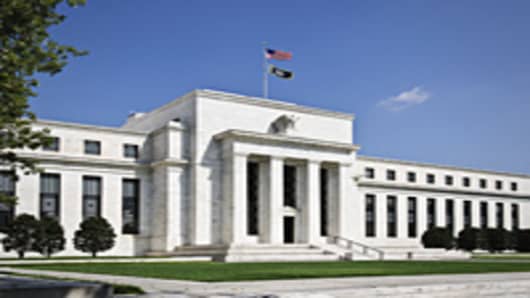Most Federal Reserve policymakers agreed last month that they might need to take more action to support growth if the U.S. economy loses momentum.
Minutes of their June meeting released Wednesday show that Fed officials signaled their concern that the struggling U.S. economy could worsen if Congress fails to avert tax hikes and across-the-board spending cuts that kick in at the end of the year.
Stocks fellin reaction to the release of the minutes.
They also expressed worries that Europe's debt crisis will weigh on U.S. growth.
Members said the economy should continue to grow moderately. But the Fed lowered its growth forecast at the meeting after seeing the U.S. job market weaken and consumer spending slow. It also said it doesn't expect the unemployment rate to fall much further this year.
Some members noted that defense contractors are already laying plans for layoffs if lawmakers don't address the package of tax hikes and spending cuts by the end of the year. Members warned that tighter government spending could slow the economy well into next year.
At the meeting, the Fed extended a program that shifts its bond portfolio to try to lower long-term interest rates. Policymakers left open the possibility of providing further help, such as launching a new program of bond purchases.
Chairman Ben Bernanke could offer some indication of the Fed's plans next week when he delivers the central bank's updated economic assessment to Congress.
Bernanke told reporters after the meeting that he was open to another round of bond purchases if the job market does not improve.
The economy created just 80,000 jobs in June, the third consecutive month of weak job growth. The unemployment rate stood at 8.2 percent.
Employers have added an average of just 75,000 jobs a month in the April-June quarter — about a third of the 225,000 jobs a month created in the first three months of the year.
Many economists predict the Fed will hold off for one more meeting and give the job market a little longer to show improvement. If it doesn't, the Fed will likely announce the program at its Sept. 12-13 meeting.
Since the recession , the Fed has purchased more than $2 trillion in Treasury bonds and mortgage-backed securities, expanding its portfolio to more than $2.8 trillion.
After its last meeting, the Fed downgraded its economic outlook.
It now expects growth of just 1.9 percent to 2.4 percent in 2012, half a percentage point lower than its April forecast.



